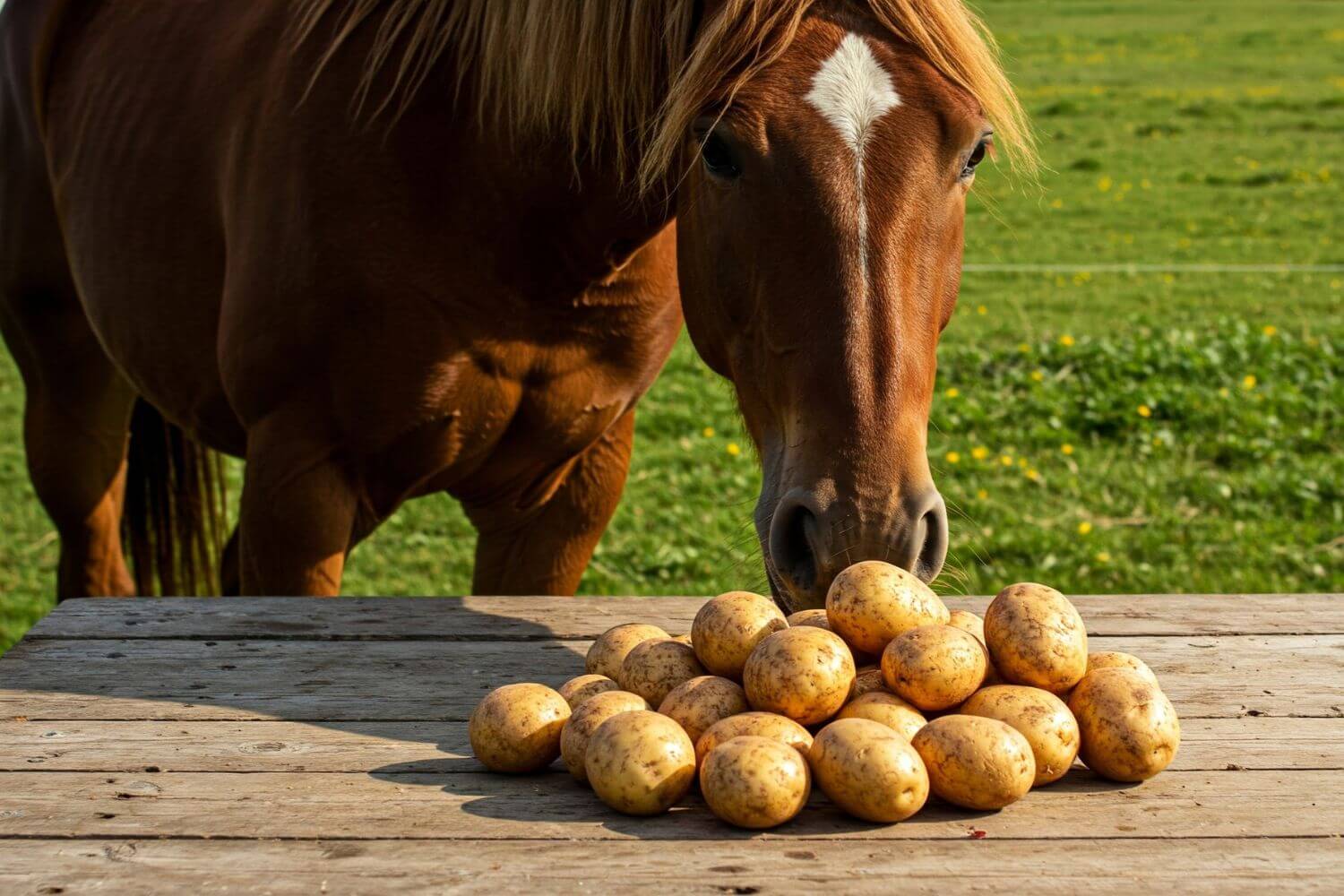
Can Horses Eat Potatoes? The Shocking Truth About Equine Diet Safety
Horses are magnificent creatures with unique dietary needs, and not all human foods are safe for them to consume. When it comes to potatoes, horse owners must exercise extreme caution. Potatoes are not a safe or recommended food for horses, presenting significant health risks that can potentially harm your beloved equine friend.
The green parts of potato plants, potato skins, and raw or cooked potatoes contain solanine, a toxic compound that can cause serious digestive issues and potentially life-threatening conditions in horses. While horses have sensitive digestive systems designed for specific types of vegetation, potatoes can disrupt their delicate nutritional balance and lead to severe health complications.
Chapter 1: Understanding Horse Nutrition and Dietary Restrictions 🍎
Equine diet is a complex and carefully balanced system that requires specific nutrients and careful consideration. Horses are herbivores with a digestive tract optimized for processing grass, hay, and specific grains. Their nutritional needs are fundamentally different from humans or other domestic animals.
Key considerations in horse nutrition include:
- Digestive system specifics
- Nutrient absorption capabilities
- Metabolic requirements
- Potential dietary sensitivities
The Dangers of Inappropriate Foods
Horse health depends critically on maintaining a proper diet. Introducing inappropriate foods like potatoes can lead to:
- Digestive tract inflammation
- Potential toxic reactions
- Metabolic disruptions
- Risk of colic or laminitis
➤ Also Read: Are Wild Horses Dangerous? Understanding Equine Behavior in Natural Settings
Chapter 2: Why Potatoes Are Dangerous for Horses 🚫
Toxic Compounds in Potatoes
Potatoes contain solanine, a glycoalkaloid poison that is particularly concentrated in:
- Green potato skins
- Sprouting potato parts
- Raw potato tissues
This compound can cause significant digestive system challenges for horses, potentially leading to:
- Severe gastrointestinal distress
- Neurological symptoms
- Potential organ damage
Chapter 3: Safe Alternatives to Potatoes 🥕
Recommended Horse Treats
Instead of potatoes, horse owners can offer safe and nutritious alternatives:
- Carrots
- Apples (in moderation)
- Specific horse treats
- Recommended fruits with low sugar content
Consulting Veterinary Professionals
Veterinary advice is crucial in developing a comprehensive feeding strategy. Professional guidance ensures:
- Proper nutritional balance
- Understanding individual horse dietary needs
- Identifying safe treat options
Chapter 4: Recognizing Potential Feeding Risks
Professional horse caretakers understand the importance of portion control and dietary fiber management. Each horse has unique nutritional requirements that depend on:
- Age
- Activity level
- Overall health condition
- Metabolic characteristics
Chapter 5: Maintaining Optimal Equine Wellness
Responsible horse ownership means prioritizing horse care through:
- Consistent dietary monitoring
- Regular veterinary check-ups
- Understanding individual nutritional needs
- Avoiding potentially harmful foods
Frequently Asked Questions About Horse Nutrition
H2: Common Questions About Horses and Feeding
Q: How can I tell if my horse has eaten something toxic? A: Watch for symptoms like digestive distress, lethargy, or unusual behavior, and contact a veterinarian immediately.
Q: What foods are absolutely forbidden for horses? A: Avoid potatoes, avocados, chocolate, garlic, onions, and any moldy or fermented foods.
Conclusion
Protecting your horse’s health requires knowledge, vigilance, and a commitment to proper nutrition. Always prioritize professional veterinary guidance and maintain a balanced, safe diet for your equine companion.
Disclaimer: This article is for informational purposes and should not replace professional veterinary advice.






















